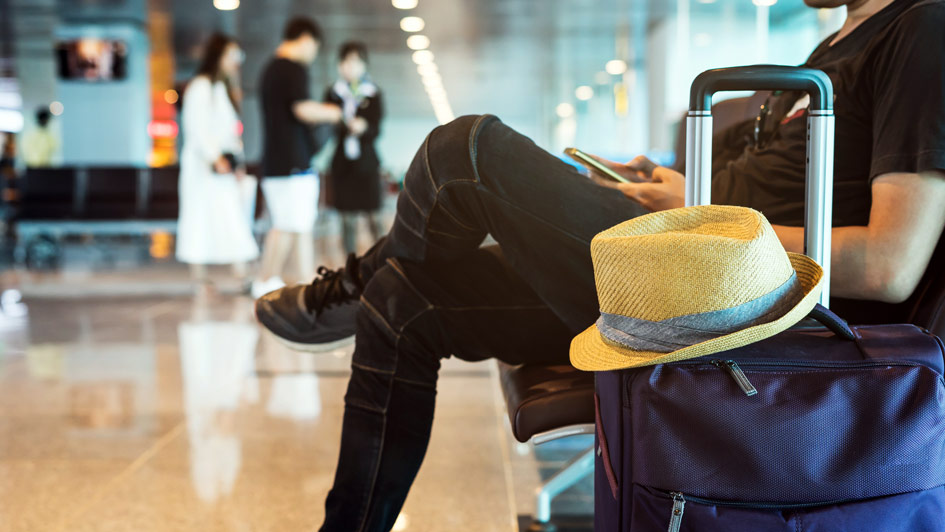
From a tropical vacation or a lengthy trip for work, leaving home means making preparations for your heating and cooling system. You won’t be using it while you’re on a trip, so you can adjust the temperature as appropriate to limit your energy use. At the same time, you shouldn't just shut it down for the entire time you're gone.
Instead, it’s best to leave your HVAC system on and just make adjustments depending on whether it's winter or summer. That way you can reduce energy costs without having to worry about coming back to an uncomfortable home. We’ll walk you through why you should leave your HVAC system on as well as the most energy-efficient thermostat settings for summer and winter.
This Is Why You Avoid Leaving Your Thermostat on Hold
While you might be inclined to turn your HVAC system off before a trip, this could end up causing annoying problems by the time you come back. This is especially true in case the weather will be severely hot or cold while you’re gone.
For example, turning the HVAC system off during the summer could cause very high humidity. Not only will your home feel gross when you have returned, but it might have also encouraged mold/mildew growth or pest infestations.
And in the winter, not using the furnace will sometimes lead to pipes freezing up or even bursting. It’s exhausting to return home from a long trip only to come across extensive water damage nearby a broken pipe.
Best Thermostat Settings While at Work
You can optimize the temperature even as you come and go to work. Considering you’re away for around 8 hours or so, it doesn’t seem sensible to keep an empty home at the same temperature you’d usually have. As a general rule, it’s recommended to raise the thermostat by 5 degrees or more. That means that if you prefer a comfortable 72 degrees, think about increasing it to 76-77 while you’re out.
But you may save even more if you’re willing to further adjust the temperature. As reported by the Department of Energy, you could save around 10% on your HVAC spending by making an adjustment of 7-10 degrees.
Best Thermostat Settings While Away from Home in Summer
If you’re leaving for a longer trip in the heart of summer, you can make more significant adjustments. This helps you avoid using too much energy while still safeguarding your home from the issues that come with leaving it uncooled. Around 5 degrees is recommended for short trips while around 10 degrees is best if you’ll be away from home for 2 weeks or more. If you like keeping the house at 72 in the summer, 78-82 should offer the best results.
Ideal Thermostat Settings While Away from Home in Winter
To figure out the ideal thermostat setting for a winter getaway, consider lowering the temperature by the same amount you would raise it in summer. 68 is a common winter thermostat setting, so adjusting to 63-58 will prevent ice from forming on pipes while restricting how frequently your furnace operates.
Smart Thermostats Are Even Better: Benefits of Smart Thermostat Installation
A great way to regulate your home’s HVAC system while out of the house is with a smart thermostat. This innovative type of programmable thermostat utilizes intelligent software to understand your preferred comfort habits. It gradually understands these preferences and makes automatic corrections to the schedule for better energy efficiency. And with Wi-Fi compatibility, you can remotely control your heating and cooling with a mobile device or tablet.
Smart thermostats are stuffed with features to help you save on your energy bill. For instance, specific models can track electricity prices to increase heating or cooling when prices are more affordable. They can be used with high-efficiency, variable-speed equipment to fine-tune how long your HVAC system has to run. It’s the optimal tool to enhance how you control your comfort system. If you’re planning on investing in a smart thermostat, there are different ways you can lower your costs, essentially getting a smart thermostat for free. The next time you leave for vacation, you can enjoy true peace of mind that your HVAC system won’t cause any trouble while you’re gone.
